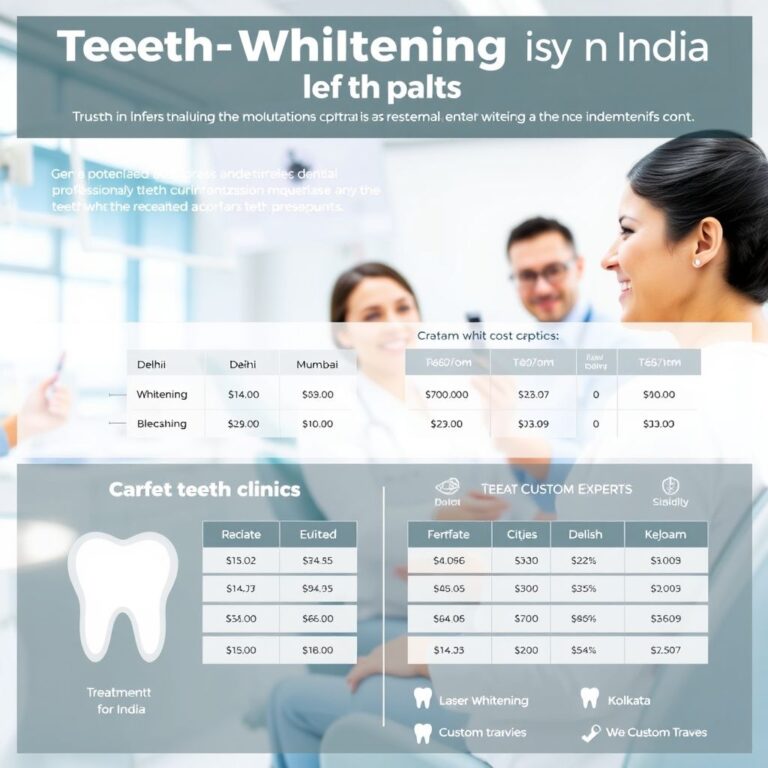Teeth Whitening Dentist: An In-Depth Guide
Teeth whitening has become a popular cosmetic dental procedure, offering a way to achieve a brighter and more confident smile. This comprehensive guide explores the world of teeth whitening, providing detailed insights into the process, benefits, and considerations when choosing a professional teeth whitening dentist.

Understanding Teeth Whitening
Teeth whitening is a dental procedure aimed at lightening the natural color of teeth without removing any of the tooth surfaces. It helps remove stains and discoloration, improving the overall appearance of teeth.
Causes of Teeth Discoloration
Discoloration of teeth can occur due to various factors, including:
- Dietary Choices: Consuming coffee, tea, wine, and certain foods can stain teeth.
- Smoking: Tobacco use is a significant cause of teeth discoloration.
- Aging: As we age, the enamel on our teeth wears down, revealing the yellowish dentin beneath.
- Medications: Certain medications, like antibiotics and antihistamines, can lead to teeth discoloration.
- Poor Dental Hygiene: Inadequate brushing and flossing can result in plaque buildup and staining.
Types of Teeth Whitening Methods
4.1. In-Office Teeth Whitening
In-office teeth whitening, performed by a dentist, is the most effective method. This procedure involves applying a high-concentration bleaching gel to the teeth under controlled conditions, often enhanced by laser or light to accelerate the whitening process.
4.2. At-Home Teeth Whitening Kits
These kits, provided by dentists, include custom-fitted trays and a lower-concentration bleaching gel. While not as fast as in-office treatments, they offer convenience and gradual whitening over several weeks.
4.3. Natural Remedies
Some individuals prefer natural methods like baking soda, hydrogen peroxide, or oil pulling. However, these methods are less effective and can sometimes cause damage if not used properly.
Benefits of Professional Teeth Whitening
- Immediate Results: Professional treatments deliver faster and more noticeable results compared to over-the-counter products.
- Customized Approach: Dentists tailor the treatment to the individual’s specific needs.
- Safety: Professional supervision minimizes the risk of gum irritation and tooth sensitivity.
Risks and Considerations
- Sensitivity: Some patients may experience temporary tooth sensitivity.
- Gum Irritation: The bleaching agents can irritate the gums if not applied correctly.
- Not Suitable for Everyone: Teeth whitening is not recommended for pregnant women, individuals with dental restorations, or those with severe tooth decay.
Choosing the Right Dentist for Teeth Whitening
Selecting a qualified dentist is crucial for a safe and effective teeth whitening experience. Consider the following factors:
- Credentials and Experience: Ensure the dentist has relevant qualifications and experience in cosmetic dentistry.
- Reputation: Check reviews and testimonials from previous patients.
- Technology and Techniques: Modern equipment and up-to-date techniques contribute to better outcomes.
Teeth Whitening Procedure
8.1. Initial Consultation
The process begins with a consultation, during which the dentist assesses the patient’s oral health and discusses their whitening goals.
8.2. The Whitening Process
The dentist applies a protective gel to the gums before coating the teeth with the bleaching agent. A special light or laser is then used to activate the gel, enhancing the whitening effect.
8.3. Post-Procedure Care
After the procedure, patients are advised to avoid staining foods and beverages, maintain good oral hygiene, and use a fluoride toothpaste to reduce sensitivity.
Cost of Teeth Whitening
The cost of teeth whitening varies depending on the method used and the dentist’s location. In-office treatments typically range from $500 to $1,500, while at-home kits can cost between $100 and $400. The table below provides a comparison of costs:
| Treatment Type | Cost Range |
|---|---|
| In-Office Whitening | $500 – $1,500 |
| At-Home Whitening Kits | $100 – $400 |
| Natural Remedies | Minimal |
Maintaining White Teeth After Treatment
To prolong the results of teeth whitening:
- Avoid Staining Foods and Beverages: Limit intake of coffee, tea, and red wine.
- Practice Good Oral Hygiene: Brush twice daily and floss regularly.
- Use Whitening Toothpaste: These products help maintain the brightness of your smile.
FAQs
Q1: How long does teeth whitening last? A: The results can last from six months to two years, depending on lifestyle and oral hygiene.
Q2: Is teeth whitening safe? A: Yes, when performed by a professional dentist, teeth whitening is safe and effective.
Q3: Can everyone get their teeth whitened? A: Teeth whitening is not suitable for individuals with certain dental conditions or those who are pregnant.
Q4: Are there any side effects? A: Some patients may experience temporary sensitivity or gum irritation.
Conclusion
Teeth whitening is a popular cosmetic dental procedure that offers a brighter, more confident smile. By understanding the different methods, benefits, and risks, you can make an informed decision about the best approach for your teeth whitening needs.
Additional Resources
- American Dental Association: www.ada.org
- British Dental Health Foundation: www.dentalhealth.org
- World Health Organization Oral Health: www.who.int/oral_health


